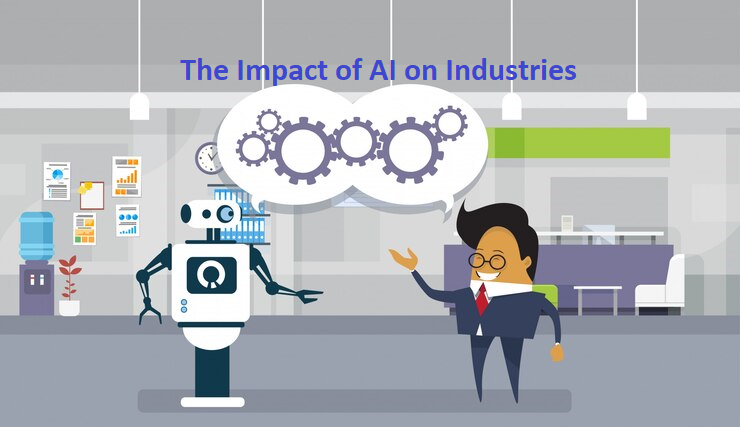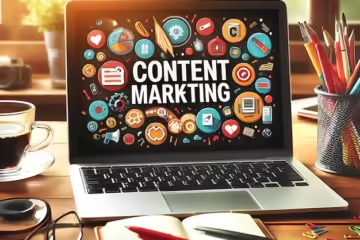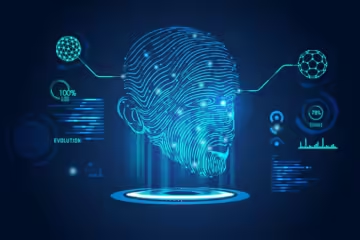Artificial Intelligence (AI) is revolutionizing various industries by introducing transformative technologies that enhance efficiency, drive innovation, and improve decision-making. From healthcare to finance, the integration of AI is reshaping the way businesses operate and deliver value. In this blog, we explore how AI is impacting key industries and the applications driving this transformation.
1. Healthcare
AI is making significant strides in the healthcare sector, enhancing diagnostic accuracy, personalizing treatment plans, and optimizing administrative tasks. Some notable applications include:
Predictive Analytics: AI algorithms analyze vast amounts of patient data to predict disease outbreaks, patient admissions, and treatment outcomes. This enables healthcare providers to allocate resources more effectively and improve patient care.
Medical Imaging: AI-powered imaging tools assist radiologists by detecting anomalies in X-rays, MRIs, and CT scans with high accuracy. For example, Google’s DeepMind has developed an AI system that can identify over 50 eye diseases from retinal scans.
Drug Discovery: AI accelerates the drug discovery process by analyzing biological data and predicting which compounds are likely to be effective. This reduces the time and cost associated with bringing new drugs to market.
2. Finance
In the financial industry, AI is transforming risk management, fraud detection, and customer service. Key applications include:
Algorithmic Trading: AI systems analyze market data in real-time and execute trades at optimal times, enhancing profitability and reducing human error. Firms like Renaissance Technologies use AI to drive their trading strategies.
Fraud Detection: AI algorithms identify unusual transaction patterns and flag potential fraud in real-time. This helps financial institutions prevent losses and protect customers’ assets.
Personalized Banking: AI-powered chatbots and virtual assistants provide personalized financial advice and support, improving customer engagement and satisfaction. For example, Bank of America’s Erica uses AI to assist customers with their banking needs.
3. Manufacturing
AI is revolutionizing manufacturing processes by improving efficiency, quality control, and predictive maintenance. Notable applications include:
Predictive Maintenance: AI analyzes data from sensors on machinery to predict when maintenance is needed, reducing downtime and extending equipment lifespan. Companies like Siemens use AI to monitor industrial machinery and optimize maintenance schedules.
Quality Control: AI-powered vision systems inspect products for defects and inconsistencies, ensuring high-quality standards. This reduces waste and enhances customer satisfaction.
Supply Chain Optimization: AI algorithms optimize supply chain operations by predicting demand, managing inventory, and selecting the best logistics routes, thereby reducing costs and improving efficiency.
4. Retail
In the retail industry, AI enhances customer experiences, streamlines operations, and drives sales growth. Key applications include:
Personalized Recommendations: AI analyzes customer behavior and preferences to provide personalized product recommendations. E-commerce giants like Amazon use AI to suggest items that customers are likely to purchase, boosting sales and customer satisfaction.
Inventory Management: AI predicts demand and automates inventory replenishment, ensuring that products are available when customers need them. This reduces stockouts and overstock situations.
Customer Service: AI-powered chatbots handle customer inquiries and support requests, providing quick and accurate responses. Retailers like H&M use AI chatbots to assist customers with product information and order tracking.
5. Transportation and Logistics
AI is transforming transportation and logistics by improving route planning, vehicle automation, and supply chain management. Key applications include:
Autonomous Vehicles: AI enables self-driving cars and trucks to navigate roads, reducing the need for human drivers and increasing transportation efficiency. Companies like Tesla and Waymo are at the forefront of developing autonomous vehicle technologies.
Route Optimization: AI algorithms analyze traffic patterns and weather conditions to determine the most efficient routes for delivery vehicles, reducing fuel consumption and delivery times.
Warehouse Automation: AI-powered robots and automation systems streamline warehouse operations by handling tasks such as sorting, packing, and shipping, thereby increasing productivity and accuracy.
Conclusion
AI is a transformative force across various industries, driving innovation and improving operational efficiency. As AI technologies continue to evolve, their applications will expand, offering even greater benefits and opportunities for businesses and society. Staying informed about these advancements is crucial for leveraging AI’s potential to its fullest. For further reading on AI’s impact on industries, consider exploring articles and reports from sources like MIT Technology Review, Forbes, and McKinsey & Company.





